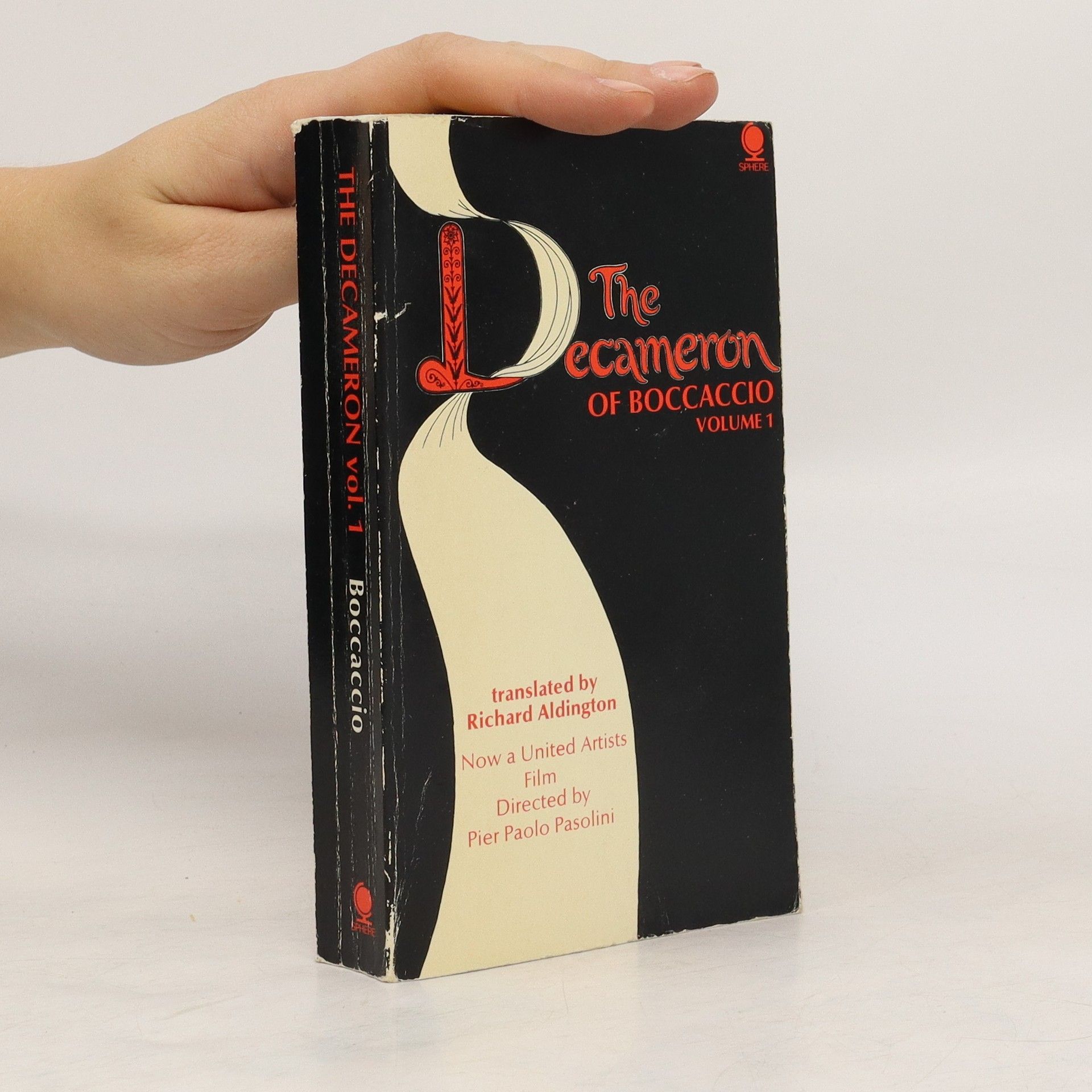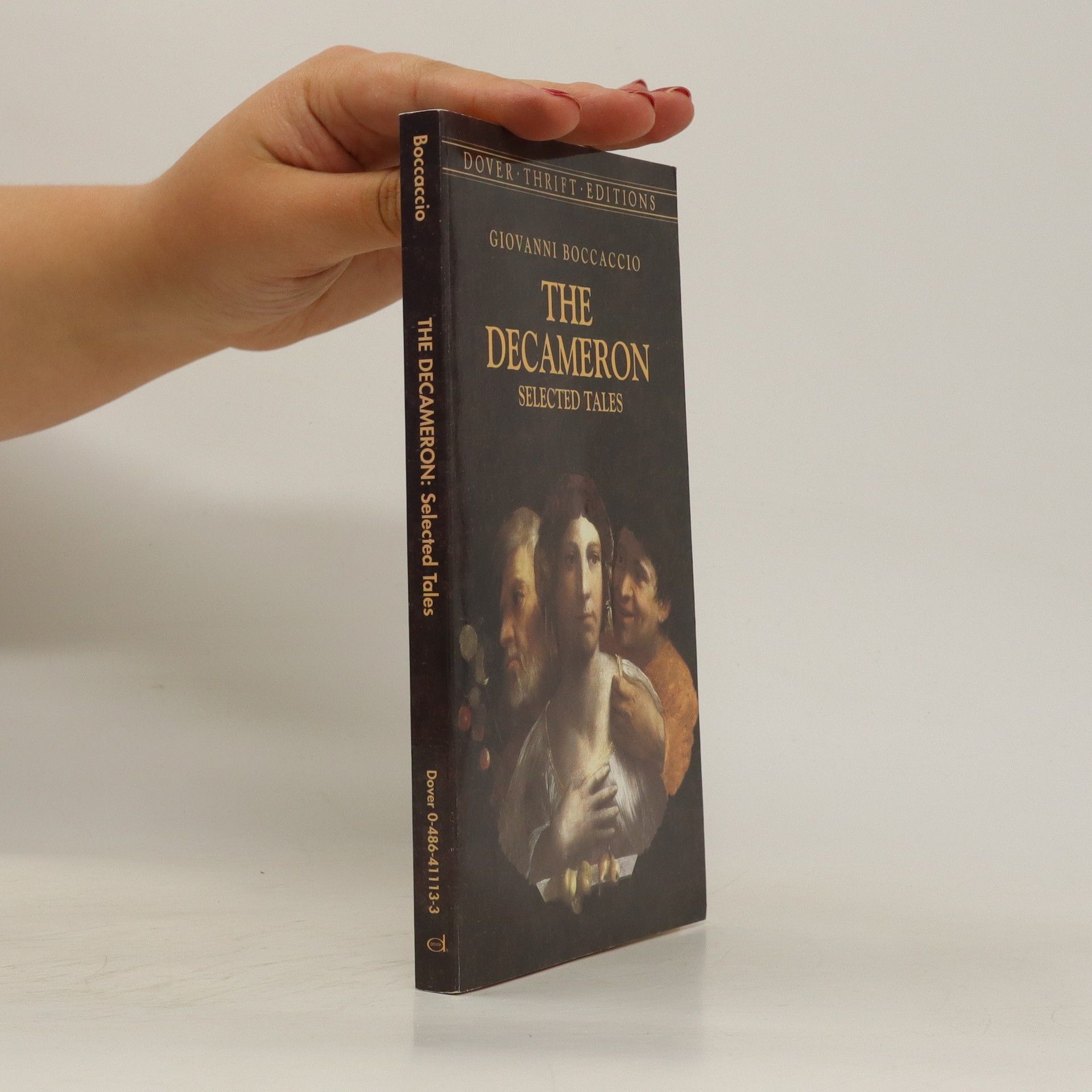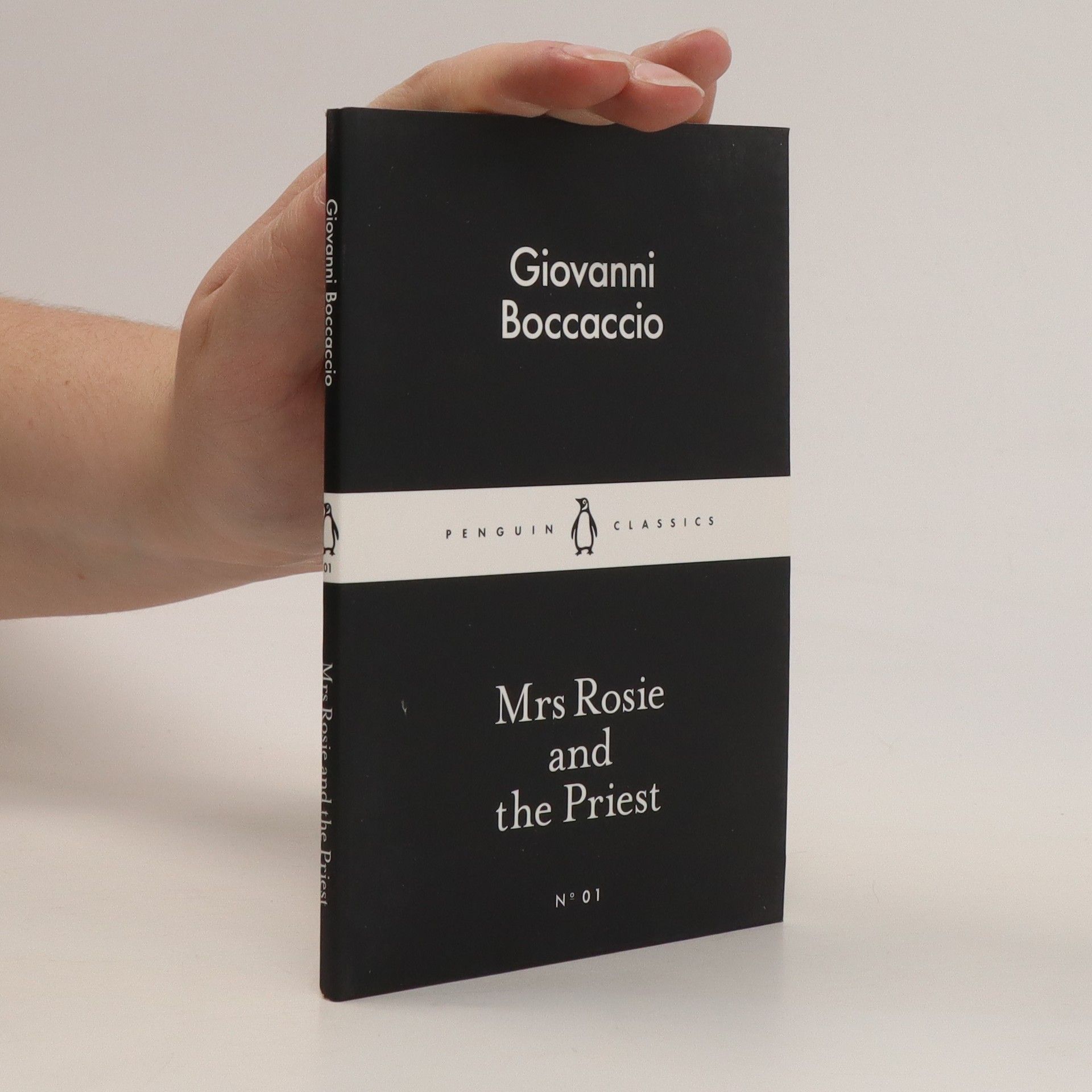Giovanni Boccaccio Books
Giovanni Boccaccio was an Italian author and poet celebrated for his mastery of dialogue, which is noted for surpassing the verisimilitude of his contemporaries' work, often bound by medieval formulaic conventions. As a significant Renaissance humanist, his writing delved into a wide array of themes, exploring human nature and societal intricacies with remarkable authenticity. Boccaccio's innovative approach to characterization and plot, moving beyond predictable models, established a distinct voice in literature. His profound insight into the human condition and his skillful narrative technique continue to resonate with readers, solidifying his lasting literary importance.







In the early summer of the year 1348, as a terrible plague ravages the city, ten charming young Florentines take refuge in country villas to tell each other stories - a hundred stories of love, adventure and surprising twists of fortune which later inspired Chaucer, Keats and Shakespeare. While Dante is a stern moralist, Boccaccio has little time for chastity, pokes fun at crafty, hypocritical clerics and celebrates the power of passion to overcome obstacles and social divisions. Like the Divine Comedy, the Decameron is a towering monument of medieval pre-Renaissance literature, and incorporates certain important elements that are not at once apparent to today's readers. In a new introduction to this revised edition, which also includes additional explanatory notes, maps, bibliography and indexes, Professor McWilliam shows us Boccaccio for what he is - one of the world's greatest masters of vivid and exciting prose fiction.
The Life of Dante
- 160 pages
- 6 hours of reading
The narrative explores the life of Dante, a renowned poet, delving into his experiences and the profound influence of his literary contributions. It examines the historical context of his work, highlighting the themes and ideas that shaped his poetry and his enduring legacy in literature. The book offers insights into Dante's personal journey, illustrating how his life events intertwined with his creative expression.
Tales from the Decameron. Das Dekameron, englische Ausgabe
- 352 pages
- 13 hours of reading
Bawdy and moving, hilarious and reflective - these stories offer the very best of Boccaccio's Decameron in a brilliant, playful new translation. This hugely enjoyable volume collects the best stories of Boccaccio's masterwork in a fresh, accessible new translation by Peter Hainsworth. It includes such celebrated, thought-provoking tales as 'Isabella and the Pot of Basil' (famously adapted by Keats) and 'Patient Griselda' alongside many boisterous and daring stories featuring faithless wives, philandering priests and curious nuns
This small volume contains ten tales of love and laughter, translated by G.H. McWilliam. Boccaccio's Decameron is a monumental work of mediaeval pre-Renaissance literature. When ten young Florentines take refuge outside their plague-ridden city, they entertain themselves by telling each other stories. This selection contains one tale from each day and is a perfect demonstration of why it has been called the 'human comedy', in contrast to Dante's Divine Comedy. Bawdy, outrageous, sometimes tragic or wise, these stories offer a tremendously entertaining view of society, religion and, above all, human nature.
Naughty, bawdy and newly repackaged, this medieval masterpiece is set against the background of the Black Death of 1348. The hundred linked tales in Boccaccio's masterpiece are peopled by nobles, knights, nuns, pilgrims, thieves and lovers - both faithful and faithless.
A group of young people flee to the countryside from plague-ridden Florence and pass the time in their retreat by telling tales of romance. This selection from Boccaccio's landmark of medieval literature features 25 stories from the original 100, all teeming with colorful characters and worldly wisdom. J. M. Rigg translation.
A Very Italian Christmas
- 150 pages
- 6 hours of reading
A continuation of the very popular Very Christmas series, the literary gems in A Very Italian Christmas are filled with ancient churches, trains whistling through the countryside, steaming tureens, High Mass, dashed hopes, flowing wine, and plenty of style. Like everything the Italians do, this is Christmas with its very own verve and flair.
Mrs Rosie and the Priest
- 64 pages
- 3 hours of reading
Bawdy tales of pimps, cuckolds, lovers and clever women from the fourteenth-century Florentine masterpiece The Decameron.


